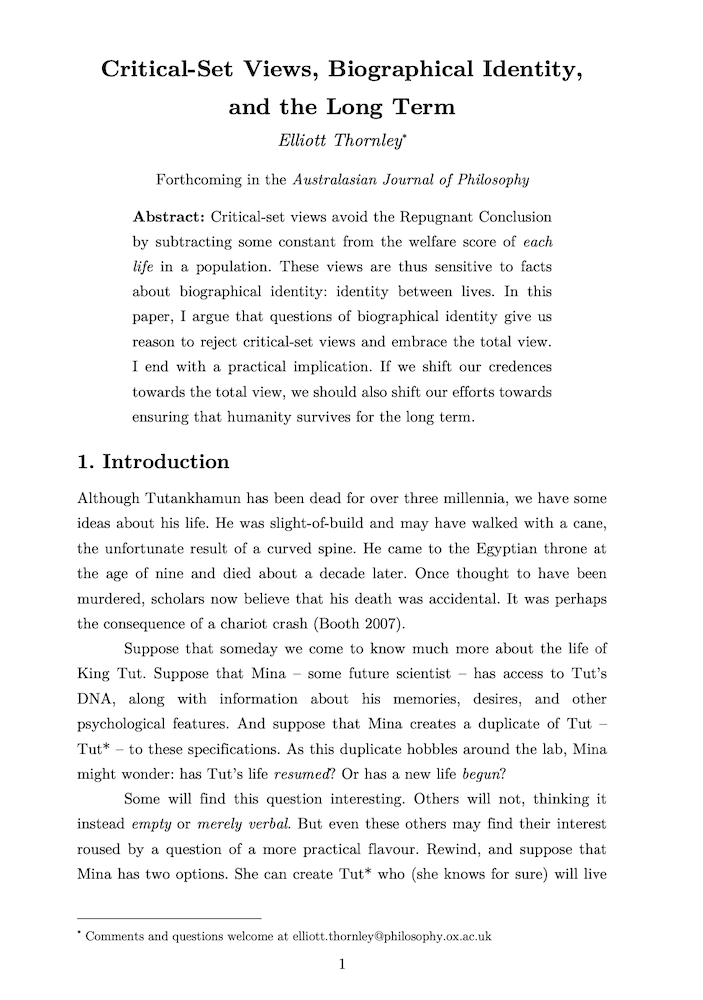Critical-set views, biographical identity, and the long term
Elliott Thornley (Global Priorities Institute, University of Oxford)
GPI Working Paper No. 7-2024, forthcoming in the Australasian Journal of Philosophy
Critical-set views avoid the Repugnant Conclusion by subtracting some constant from the welfare score of each life in a population. These views are thus sensitive to facts about biographical identity: identity between lives. In this paper, I argue that questions of biographical identity give us reason to reject critical-set views and embrace the total view. I end with a practical implication. If we shift our credences towards the total view, we should also shift our efforts towards ensuring that humanity survives for the long term.
Other working papers
Strong longtermism and the challenge from anti-aggregative moral views – Karri Heikkinen (University College London)
Greaves and MacAskill (2019) argue for strong longtermism, according to which, in a wide class of decision situations, the option that is ex ante best, and the one we ex ante ought to choose, is the option that makes the very long-run future go best. One important aspect of their argument is the claim that strong longtermism is compatible with a wide range of ethical assumptions, including plausible non-consequentialist views. In this essay, I challenge this claim…
Cassandra’s Curse: A second tragedy of the commons – Philippe Colo (ETH Zurich)
This paper studies why scientific forecasts regarding exceptional or rare events generally fail to trigger adequate public response. I consider a game of contribution to a public bad. Prior to the game, I assume contributors receive non-verifiable expert advice regarding uncertain damages. In addition, I assume that the expert cares only about social welfare. Under mild assumptions, I show that no information transmission can happen at equilibrium when the number of contributors…
Misjudgment Exacerbates Collective Action Problems – Joshua Lewis (New York University) et al.
In collective action problems, suboptimal collective outcomes arise from each individual optimizing their own wellbeing. Past work assumes individuals do this because they care more about themselves than others. Yet, other factors could also contribute. We examine the role of empirical beliefs. Our results suggest people underestimate individual impact on collective problems. When collective action seems worthwhile, individual action often does not, even if the expected ratio of costs to benefits is the same. …

